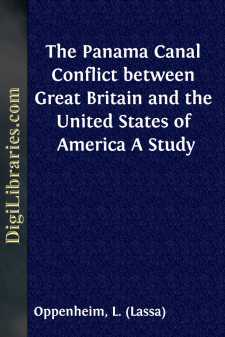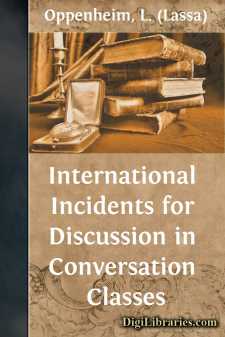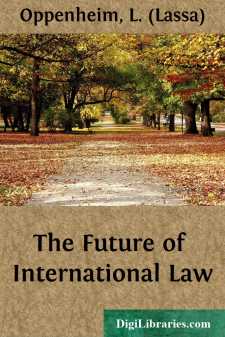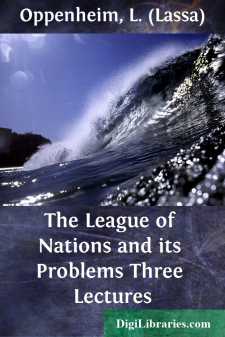Categories
- Antiques & Collectibles 13
- Architecture 36
- Art 48
- Bibles 22
- Biography & Autobiography 813
- Body, Mind & Spirit 142
- Business & Economics 28
- Children's Books 17
- Children's Fiction 14
- Computers 4
- Cooking 94
- Crafts & Hobbies 4
- Drama 346
- Education 46
- Family & Relationships 57
- Fiction 11829
- Games 19
- Gardening 17
- Health & Fitness 34
- History 1377
- House & Home 1
- Humor 147
- Juvenile Fiction 1873
- Juvenile Nonfiction 202
- Language Arts & Disciplines 88
- Law 16
- Literary Collections 686
- Literary Criticism 179
- Mathematics 13
- Medical 41
- Music 40
- Nature 179
- Non-Classifiable 1768
- Performing Arts 7
- Periodicals 1453
- Philosophy 64
- Photography 2
- Poetry 896
- Political Science 203
- Psychology 42
- Reference 154
- Religion 513
- Science 126
- Self-Help 84
- Social Science 81
- Sports & Recreation 34
- Study Aids 3
- Technology & Engineering 59
- Transportation 23
- Travel 463
- True Crime 29
The Panama Canal Conflict between Great Britain and the United States of America A Study
Categories:
Description:
Excerpt
The Panama Canal conflict is due to the fact that the Governments of Great Britain and the United States do not agree upon the interpretation of Article III, No. 1, of the Hay-Pauncefote Treaty of September 18, 1901, which stipulates as follows:—
"The Canal shall be free and open to the vessels of commerce and of war of all nations..., on terms of entire equality, so that there shall be no discrimination against any such nation, or its citizens or subjects, in respect of the conditions and charges of traffic, or otherwise. Such conditions and charges of traffic shall be just and equitable."
By Section 5 of the Panama Canal Act of August 24, 1912, the President of the United States is authorised to prescribe, and from time to time to change, the tolls to be levied upon vessels using the Panama Canal, but the section orders that no tolls whatever shall be levied upon vessels engaged in the coasting trade of the United States, and also that, if the tolls to be charged should be based upon net registered tonnage for ships of commerce, the tolls shall not exceed one dollar and twenty-five cents per net registered ton nor be less, for other vessels than those of the United States or her citizens, than the estimated proportionate cost of the actual maintenance and operation of the Canal .
Now Great Britain asserts that since these enactments set forth in Section 5 of the Panama Canal Act are in favour of vessels of the United States, they comprise a violation of Article III, No. 1, of the Hay-Pauncefote Treaty which stipulates that the vessels of all nations shall be treated on terms of entire equality.
This assertion made by Great Britain is met by the Memorandum which, when signing the Panama Canal Act, President Taft left to accompany the Act. The President contends that, in view of the fact that the Panama Canal has been constructed by the United States wholly at her own cost, upon territory ceded to her by the Republic of Panama, the United States possesses the power to allow her own vessels to use the Canal upon such terms as she sees fit, and that she may, therefore, permit her vessels to pass through the Canal either without the payment of any tolls, or on payment of lower tolls than those levied upon foreign vessels, and that she may remit to her own vessels any tolls which may have been levied upon them for the use of the Canal. The President denies that Article III, No. 1, of the Hay-Pauncefote Treaty can be invoked against such power of the United States, and he contends that this Article III was adopted by the United States for a specific purpose, namely, as a basis of the neutralisation of the Canal, and for no other purpose. This article, the President says, is a declaration of policy by the United States that the Canal shall be neutral; that the attitude of the Government of the United States is that all nations will be treated alike and no discrimination is to be made against any one of them observing the five conditions enumerated in Article III, Nos. 2-6. The right to the use of the Canal and to equality of treatment in the use depends upon the observance of the conditions by the nations to whom the United States has extended that privilege. The privileges of all nations to which the use of the Canal has been granted subject to the observance of the conditions for its use, are to be equal to the privileges granted to any one of them which observes those conditions....





